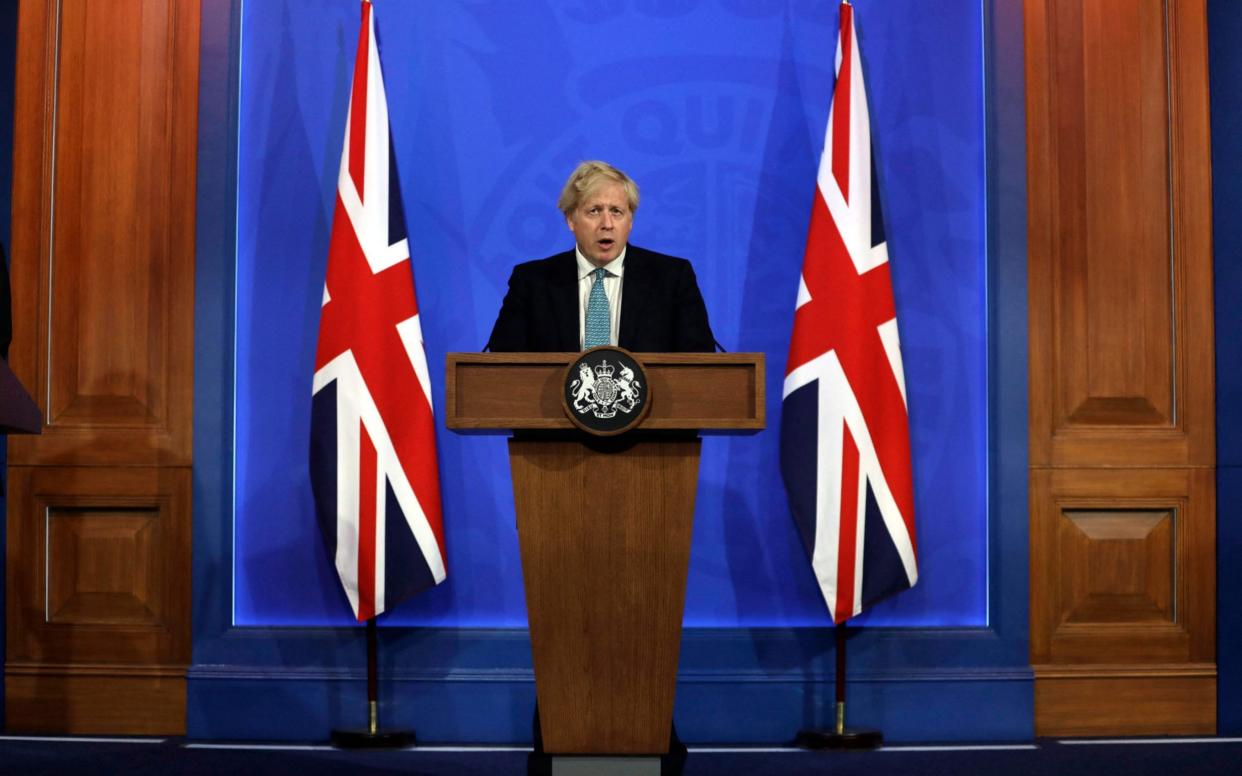Boris Johnson would secure 122-seat majority if he called snap general election, mass poll finds

- Oops!Something went wrong.Please try again later.
- Oops!Something went wrong.Please try again later.
- Oops!Something went wrong.Please try again later.
Boris Johnson would secure a 122-seat landslide majority and win 23 more Red Wall seats in the Midlands and the North if he held a snap general election, according to a new mass poll.
The large-scale poll of 14,000 people carried out after the local and regional elections put the Tories on 43 per cent, a 13 per cent lead over Labour (30 per cent).
The party would pick up gains in Teesside, Sunderland, West Yorkshire and South Yorkshire, while a host of senior Labour politicians would lose their seats including Yvette Cooper, Ed Miliband and Jon Cruddas.
The survey for The Telegraph – which was carried out from May 13 to May 15 – found the Tories' lead over Labour more than doubled from five per cent before the elections to 13 per cent.
The figures are a blow to Sir Keir Starmer, the Labour leader, whose authority has been tested after a disastrous showing last week.
Analysis of the figures suggests that the Conservatives would gain a landslide majority of 122 seats – up from 81 today – if the Prime Minister ordered a snap general election.
Pollster Find Out Now and election experts Electoral Calculus ran the poll on voting intention for Westminster on behalf of The Telegraph in the wake of the May 6 elections.
A forecast based on those results left the Conservatives with a reduced 36-seat majority. However, in the days since the elections the Tories' position strengthened significantly.
The experts found that – compared with the 2019 general election result – Tories would increase their seats by 21 to 386, while Labour would fall back 31 seats to 172.
The SNP was forecast to pick up another 10 seats, taking its number of MPs to 58 – leaving just a single Scottish MP who is not from the SNP.
Meanwhile, the Liberal Democrats would lose two seats, to be left with nine, and the Greens would gain an extra seat to be left with two MPs.
Chris Holbrook, chief executive of Find Out Now, said Labour – already squeezed by the Tories in some parts – was now losing support to the Greens.
He said: “As the successful vaccine rollout continues to endear the Conservatives to a beleaguered nation, Labour’s rebuild seems to have not progressed past the destructive phase.
“The Greens are benefitting particularly at the moment from Labour’s present weakness.”
Martin Baxter, chief executive of Electoral Calculus, said an “existential question is looming large for Labour as its traditional supporters continue to abandon it”.
He said: “The aftermath of the local elections has seen a slide in support away from Labour.
“The Conservatives now have a double digit-lead over Labour, and could be on course for a landslide majority. A divided opposition with votes split between Labour, Lib Dems and Greens pretty makes it easy for the Conservatives to win.
“Only in Scotland and Wales, where the Conservatives are not the largest party, does their winning formula break down.”
The analysis shows that the Tories would pick up 23 new Red Wall seats in the Midlands and the North but just six more in London and the South.
One of the few Conservative casualties would be Scottish secretary Alister Jack, who would lose his Dumfries and Galloway seat to the rampant SNP in Scotland.
Speculation is mounting that Mr Johnson might try to go to the country as early as May 2023, three and a half years into the Parliament.
The Queen’s Speech included new legislation to give the PM the power to call an election without relying on a vote in Parliament.
Last month, Mr Johnson launched a new Election Fund, telling members in a letter he wanted to “build up formidable defences in the seats we just hold to win the next election”.
Sir Keir has also warned his party “to be ready to fight one as early as 2023”.

